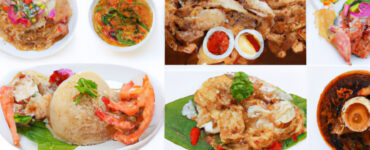Introduction: Halal Food
In recent years, the global demand for halal food has experienced an unprecedented rise, driven by an increasing global Muslim population and a growing awareness of halal certification. This article aims to shed light on the emergence of the halal food market and delve into the factors that contribute to its surging popularity worldwide.
Understanding Halal Food
Halal, an Arabic term meaning “permissible,” refers to food and beverages that adhere to Islamic dietary laws as prescribed in the Quran. These laws dictate specific principles on how animals should be slaughtered, the prohibition of alcohol and pork, and the requirement to avoid food that has been contaminated by non-halal substances.
Factors Driving the Growth
1. Expanding Muslim Population
The global Muslim population has been steadily increasing, and it is predicted to reach 2.3 billion by 2030, representing nearly one-third of the world’s population. Consequently, this rise in the number of Muslims has led to an increased demand for halal food, creating a massive market opportunity for both local and international businesses.
2. Awareness and Accessibility
As the awareness of halal food grows, more consumers are seeking out halal-certified products. In addition to Muslims, non-Muslims also perceive halal food as a healthier and more ethical choice due to the stringent quality control processes involved in halal certification. The food industry has responded to this demand by offering a wider range of halal products, making them readily available in supermarkets, restaurants, and online platforms.
3. Economic Benefits
The rise of the halal food market has spurred economic growth in both local and international economies. Countries such as Malaysia, Indonesia, and the United Arab Emirates have established themselves as global halal food hubs, attracting investments and tourists seeking halal culinary experiences. Moreover, non-Muslim-majority countries have also recognized the potential economic benefits and are vying to tap into this growing market by actively promoting and supporting halal food industries.
4. Globalization and Migration
Migration patterns have played a vital role in the spread and popularity of halal food. Muslims living in non-Muslim-majority countries often face challenges in finding halal food options. This has led to the emergence of halal-specific industries catering to the needs of Muslim communities, further influencing mainstream consumption patterns. As globalization continues to blur cultural boundaries, halal food has become a visible and desirable culinary choice worldwide.
Challenges and Opportunities
While the demand for halal food continues to soar, it is not without its challenges. One primary challenge is the lack of harmonized halal certification standards across different countries. This can create confusion for consumers and pose obstacles for international trade. However, efforts are being made to establish a global regulatory framework to address these concerns and enhance consumer trust.
On the other hand, the increasing demand for halal food presents a range of opportunities for businesses. Halal certification agencies, for instance, play a vital role in ensuring compliance with halal standards, offering services such as auditing and product certification. The growing halal food tourism industry is another area that businesses can tap into, attracting visitors who seek halal culinary experiences, which include dining options, food festivals, and food tours.
Conclusion
The rise of halal food reflects a global shift in consumer preferences and cultural landscapes. With the increasing Muslim population, rising awareness, and economic benefits associated with the halal food market, it has become essential for businesses to understand and tap into this expanding market segment. Furthermore, collaboration between governments, certification bodies, and businesses is crucial to providing a standardized and globally recognized halal certification system. As the demand for halal food continues to grow, the future looks promising for this flourishing industry.

































Add comment